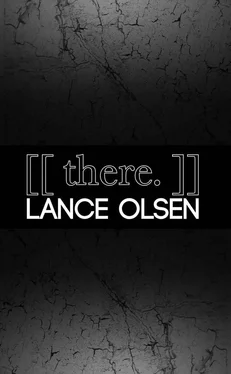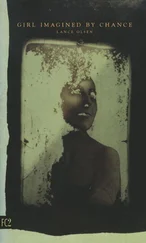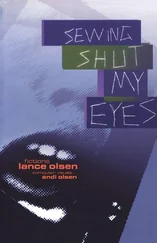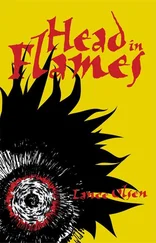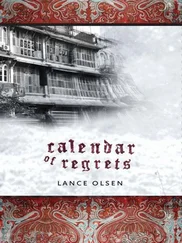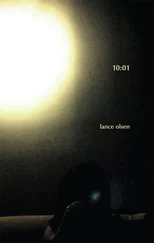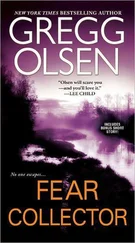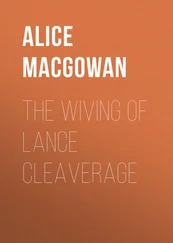Abish, whose family fled Austria in the thirties, had never stepped foot inside Germany before his novel appeared.
:::: Because exile, Edward Said argued, is a permanent state. It isn’t something that can be gotten over, cannot be restored. It’s like the fall from Paradise. You can’t really go back. In that case, what is it that exile affords you that wouldn’t be the case for someone who always stayed at home, went through the daily routine? I think the essential privilege of exile is to have, not just one set of eyes, but half a dozen, each of them corresponding to the places you have been. Therefore, instead of looking at experience as a single, unitary thing, it’s always got at least two aspects: the aspect of the person who is looking at it and has always seen it, looking at it now and seeing it now, and the person who remembers what it would have looked like from that other place. There is always a kind of doubleness to that experience, and the more places you have been, the more displacements you’ve gone through. . the more experiences seem to be multiple and complex and composite and interesting for that reason.
:::: The weather warming and bluing. Rectangular daffodil rugs appear in the garden down by the marina. Andi and I move out onto our balcony overlooking the Wannsee for breakfast. Two spindly chairs, a small round rust-red table. Early greenness fuzzing the trees.
We take a moment to make a little toast to the villa across the lake where that conference convened 71 years ago.
:::: Because back in Salt Lake City two large framed photographs hang on the walls of my study, both by Joel-Peter Witkin. They are the only ones by an established artist Andi and I have ever felt it imperative to purchase.
Each is a still life, a nature morte , a dead nature , constructed from corpse parts the photographer found and posed in morgues in Mexico and France.
:::: How, in the end, inside always becomes outside.
:::: That which separates us, exiles us, from the rest of the world — our sphincterial control, our skin, our existential spacesuit — gradually goes away as we become something other than what we are.
:::: The second video released from Bowie’s The Next Day is the Lynchian The Stars (Are Out Tonight). Tilda Swinton and Ziggy Stardust’s father play an older bourgeois couple whose comfortable existence dislocates when a pair of rockers (one a version of the earlier androgynous Bowie) follows them home from the neighborhood grocery store and commences haunting their physical and emotional space. Yet the predictable erotic/demonic alien invasion narrative perverts by the video’s conclusion: the older bourgeois couple turns out to be the opposite of what we anticipate. They begin haunting the younger couple even as they are haunted. Interpretive absonance erupts, unmooring the comment Bowie and Swinton exchange at the video’s outset: We have a nice life.
[[We]] [[have]] [[a]] [[nice]] [[life]] [[.]]
:::: The existence that the older couple performs/deforms disarranges their younger disruptors even as the heavy-energy vintage-Bowie soundtrack complicates any simple reading of Where are We Now , that first vulnerable video from The Next Day .
I’m still alive, The Stars (Are Out Tonight) song and video argue. You’re still et cetera.
:::: Melancholia : the condition of perpetual mourning, the refusal to be done with death(s).
:::: How do I live the violence of my formation?
Wondered Judith Butler.
:::: Sitting in the audience at Philip Glass’s Akhnaten , the 1983 operatic conclusion to his trilogy about three visions (Einstein’s and Gandhi’s form the first and second: i.e., ones concerning science and politics; this one concerns religion) which altered the age in which they lived, and remembering how remote, how exiled from any sonic homeland, his music sounded when you first heard it, how harmonic and melodic it sounds tonight, how everything you’ve heard since then has taught you how to rehear what you [[heard]] in the early eighties, how what you [[heard]] in the early eighties as [[avant-garde]] you now hear as some stepbrother of something distantly pop.
With nearly 2500 fans at more rock concert than classical performance in massive hangar two at Tempelhof airport, defunct since 2008, whose aerial layout resembles an eagle in flight, its semicircular hangars spread wings, intended by the Nazis who built it to serve as gateway to Germania and the new post-war Europe.
:::: The irony of man’s condition, advanced Ernest Becker, who as an infantryman during the Second World War helped liberate a concentration camp, is that the deepest need is to be free of the anxiety of death and annihilation; but it is life itself which awakens it, and so we must shrink from being fully alive.
:::: Is there no way out of the mind?
Inquired undone Sylvia Plath.
:::: In Kafka’s prose poem, the Emperor on his deathbed whispers an urgent message to his herald, who immediately strikes off to deliver it to you. Yet it takes him forever to make his way through the crowd jamming the palace. And even if he were to succeed in reaching the exit, which he won’t, he would simply find more stairs, more courtyards, a second palace surrounding the first, and the infinite capital city beyond. So you are left alone, sitting at your window, dreaming of a dead man’s message that will never arrive.
Being a brief parable about how religion, exile, language, hope, reading, writing, and the idea of travel function.
:::: Postmodern allegories, Charles Jencks used to call such narratives, because they seem to point to another level of meaning, but what that level is is made hazy, multiple, conflicted.
:::: The first Witkin photograph on my wall: a plump old woman, the top of her head missing, her skin blotched, her body supported by wires, propped next to a table in a sparse room. On the table is a book. Her finger holds her place, although the arm to which the finger is attached is no longer attached to her torso.
Interrupted Reading , the photograph is entitled.
:::: Today’s laziness consists in lifeless motion.
Maximed Ludwig Hohl.
:::: Everybody is identical in their secret unspoken belief that way deep down they are different from everyone else.
Apothegmed David Foster Wallace.
:::: Roland Barthes, redux: In front of the photograph of my mother as a child, I tell myself: she is going to die. Whether or not the subject is already dead, every photograph is this catastrophe.
:::: How my own mother, a startlingly good-willed, strong-minded woman who grew up on a cotton farm near Ganado, Texas, exiled herself to New York City as soon as possible, working as a visiting nurse, a hospital nurse, a humanities teacher. In the early seventies she exiled herself from Unitarianism into a New-Agey take on Eastern religions in search of the inaccessible land that lies beyond the horizon we think of as living.
How she primly waited to die in her living room in suburban Dallas, where my father (now dead himself) and she had retired (much to her chagrin) almost 20 years before. Also cancer, this time of the breast metastasized to spine, liver, brain.
Inventorying the clutter that took her nearly 74 years to quilt around her, she says unexpectedly, almost casually, as we sit together, to no one in particular:
All these things will forget their stories the second I’m gone.
:::: Because every once in a while Ron stopped talking, shifted in his electric wheelchair, increasingly banished from his own anatomy, looked out his picture window at the river glistening far below, glided back to alight on what we were saying, and we would pick up where we had left off. I drank bourbon, he tea through a straw. He was having trouble swallowing, was becoming tired very quickly. You could see it.
Читать дальше
